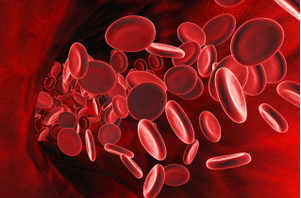Nitric oxide, NO, is a free radical that consists of one nitrogen and one oxygen bound together via a double bond. It is called a free radical because it has an odd number of electrons. Because of the unpaired electron, NO is highly reactive.

NO, with the electrons shown as dots.
NO is produced by enzymes (iNOS, eNOS and nNOS) from the amino acid L-arginine. One of the major players in the production of NO, are glial cells, which produce NO as a response to inflammatory signals. This is important, as it is a way for your body to appropriately respond to harmful stimuli. At low concentrations, NO has many physiological roles as a cellular signaling molecule, but in higher concentrations is associated with various neurodegenerative diseases, as well as multiple sclerosis and strokes. Glial cells overproduce NO in response to a variety of stimuli, such as environmental toxins, and neuronal damage/death products.
Too much NO has been associated with demyelination (removal of the protective and insulating myelin sheath from the axon of the neuron), permeability of the blood brain barrier, and interference with the transmission of the signal within the neuron. Overproduction of NO can also increase the production of more reactive oxygen species, which can wreak havoc on the cell. Such species include ONOO-, the most toxic of the reactive oxygen species. It has been implicated in cell stress, affecting mitochondrial function and a wide variety of vital proteins that help maintain neuronal health.
Researchers are looking at ways to target the signaling pathways that cause NO overproduction in glial cells as a way to prevent the neuronal cell injury/death that is associated with too much NO. Decreasing the expression of iNOS in glial cells is one way they are looking at reducing NO production. Because NO plays such an important role in the bodies cell signaling, completely inhibiting the production of NO via iNOS could even worsen the disease. Developing ways to selectively and partially inhibit the production of NO will be crucial to the success of treatments involving the overproduction of NO. More research will help to elucidate the role of NO in diseases and possibly open new paths for effective inhibition in the body.
For more detailed information and the source of information for this blog, click here.
What is NO, and is it harmful?
